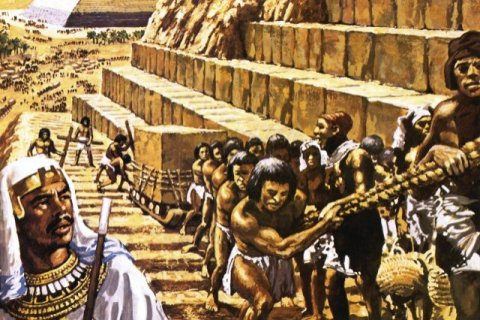Saturday, April 27, 2013
PYRAMID BUILDERS WERE PAMPERED
WITH LOTS OF MEAT, GOOD HEALTH CARE
WITH LOTS OF MEAT, GOOD HEALTH CARE
THE thousands of men who built the Giza Pyramids were pampered with a high-protein diet plentiful in meat, and received good health care, according to findings from an ancient "catering" site adjacent to the Egyptian monuments.
Debunking the legend that the pyramid builders were slaves, the evidence shows that they were well fed and cared for ... and better off than the majority of rural villagers in Ancient Egypt.
To feed the army of workers, a massive catering operation served up thousands of kilos of meat to feed the builders, say archaeologists who found the ancient remains at a site believed to have been a village used to house workers just south of the Sphinx.
According to a report in , it is thought the workers, who occupied the site for around 35 years, were building the pyramid of pharaoh Menkaure, the third and last pyramid on the Giza plateau.
The site, which has been studied for several decades, is also known by its Arabic name, Heit el-Ghurab, and is sometimes called "the Lost City of the Pyramid Builders."
So far, researchers have discovered a nearby cemetery with bodies of pyramid builders, a corral with possible slaughter areas on the southern edge of the workers' town and piles of animal bones.
Based on animal bone findings, nutritional data, and other discoveries at this workers' town site, the archaeologists estimate that an average of more than 4,000lbs of cattle, sheep and goat meat were slaughtered every day to feed the pyramid builders.
This meat-rich diet, along with the apparent availability of medical care, shown by skeletons found with healed bones, show the workers enjoyed relatively good conditions.
Richard Redding, chief research officer at Ancient Egypt Research Associates, a group that has been excavating and studying the workers' town site for about 25 years, told LiveScience the builders were looked after.
"People were taken care of, and they were well fed when they were down there working, so there would have been an attractiveness to that," he said.
"They probably got a much better diet than they got in their village," he said.


No comments:
Post a Comment